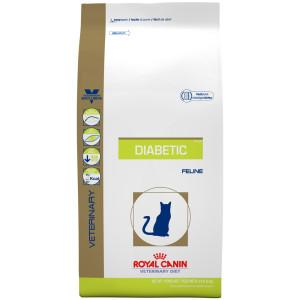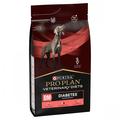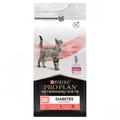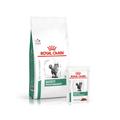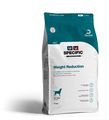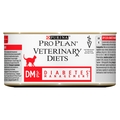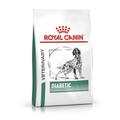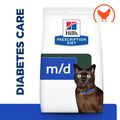How can diabetic diets help?
Unfortunately diabetes is prevalent in dogs and cats, just as it is in humans. It is more common in geriatric and overweight pets, although all can be susceptible to problems. While there is no complete cure for diabetes, regular injections of insulin can help stabilise your pet's blood glucose levels.
Your vet will be able to monitor your pet and ensure that you know the best way to care for them. There may also be a need to check blood glucose levels at home using a glucometer, by taking small samples of blood and checking the results on a test strip. There are also urine test strips available which do a similar job. The results gained from home testing should be passed to your vet so they can adjust the dose accordingly. Your pet may need daily insulin injections, as well as a dietary change to see results.
Fortunately there are several diets on the market formulated to help your pet's body deal with the changes brought about by diabetes. These diets are available in wet and dry varieties so may not require you to completely alter the type of food they are currently eating. There are a few features that are common across all 'diabetic' diets. The ingredients are generally all low in fat with higher levels of protein to combat weight gain while maintaining muscle mass. They also have a selection of higher quality ingredients which help to produce a better insulin response and more gradual release of glucose into their system after eating.
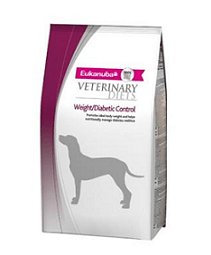 The Royal Canin Diabetic range consists of both canine and feline diets which come in both a dry and wet food. All diets have been specially formulated to aid in the management of blood glucose levels when fed as directed. They contain a low level of rapid glucose-releasing carbohydrates and a lower level of starch. By combining the two, you are giving a diet which helps keep your pet's blood glucose level consistent - a requirement for patients with diabetes.
The Royal Canin Diabetic range consists of both canine and feline diets which come in both a dry and wet food. All diets have been specially formulated to aid in the management of blood glucose levels when fed as directed. They contain a low level of rapid glucose-releasing carbohydrates and a lower level of starch. By combining the two, you are giving a diet which helps keep your pet's blood glucose level consistent - a requirement for patients with diabetes.
Each diet also has a high protein content which helps to retain the animal's muscle mass, something which needs looking after especially in overweight diabetic dogs. The canine Low Carbohydrate wet version has a much lower level of carbohydrates and starch to further aid in the management of overweight diabetic dogs, or those with a tendency to gain weight.
View our range of diabetic diets here.
Canine diets:
Eukanuba has its Weight/Diabetic Control diet for dogs, intended to help control the metabolism of glucose and the weight of the animal. With a special carbohydrate blend of barley and sorghum and a fermentable fibre blend that includes beet pulp, this diet can help to create optimal post-eating glucose reduction and insulin response. The diet helps to maintain a healthy weight by having a reduced fat content (50% less compared to Eukanuba Adult Medium breed), and suitable levels of animal protein to maintain muscle mass while reducing fat. A healthy body composition is also helped by the addition of L-Carnitine which helps to break down excess fat without affecting muscle mass.
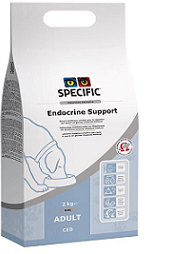 Specific CED Endocrine Support is a canine diet which helps support dogs with diabetes, especially through old age. Whole wheat and oats are the cereals it contains as they have a reduced glycemic index, meaning the rise in blood sugar levels after consumption is slow. This coupled with the high fibre content creates a gradual release of glucose from the diet into the blood. This slow release combats postprandial hyperglycemia, a symptom of diabetes which is an excessive rise in blood sugar following a meal.
Specific CED Endocrine Support is a canine diet which helps support dogs with diabetes, especially through old age. Whole wheat and oats are the cereals it contains as they have a reduced glycemic index, meaning the rise in blood sugar levels after consumption is slow. This coupled with the high fibre content creates a gradual release of glucose from the diet into the blood. This slow release combats postprandial hyperglycemia, a symptom of diabetes which is an excessive rise in blood sugar following a meal.
There is also higher levels of omega-3 fatty acids EPA and DHA which can help to maintain normal blood pressure and increase the body's sensitivity to insulin. They also suit the older dog as they are beneficial for the support of healthy joints, skin and coat. Together the ingredients in Specific CED provide a balanced diet which has a moderate energy density level, making it an ideal choice for dogs with diabetes who also have weight management issues.
It is a concern that when a pet is diagnosed with diabetes, its diet needs to change to accommodate the problem. Specific have created CT-HM Mini Healthy Treats which can be fed to diabetic patients without the worry of placing more strain on your dog's system. They are suited to overweight dogs or those that have a tendency to gain weight. They contain a mixture of complex carbohydrates and a high level of fibre which, like the CED Endocrine Support diet, promotes a gradual release of glucose into the system.
Feline diets:
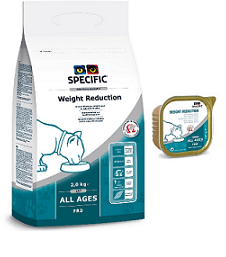 Specific FRD Weight Reduction diet can be fed to diabetic cats as well as to those with a weight problem. It contains a high level of fibre and a selection of complex carbohydrates which help to create a slower release of glucose from the diet into the cat's system. A large amount of patients who develop diabetes are overweight and this diet helps to encourage weight loss with its lower amount of fat and higher protein content.
Specific FRD Weight Reduction diet can be fed to diabetic cats as well as to those with a weight problem. It contains a high level of fibre and a selection of complex carbohydrates which help to create a slower release of glucose from the diet into the cat's system. A large amount of patients who develop diabetes are overweight and this diet helps to encourage weight loss with its lower amount of fat and higher protein content.
The extra protein, along with the added amino acid L-carnitine, has been shown to support muscle maintenance which is essential in a diet formulated for weight reduction. As an overweight cat generally puts more pressure on their joints, omega 3 fatty acids have been added to help support healthy joints. This is beneficial both in overweight cats and those which are getting older. The omega fatty acids can also help to keep the cat's skin and coat in a healthy condition.
Purina DM (Diabeties Management) is a feline diet that has been formulated into both dry and wet food options to suit a larger range of cats. The high quality ingredients that have been used are extremely palatable and, due to their easily digestible qualities, promote a sense of well being. The diet has been formulated to reduce the amount of insulin a cat requires by injection.
There are high levels of protein and amino acids in the diets, which stimulate insulin release from pancreatic cells, thus removing the need to supplement. This high protein content also provides the cat's body with better regulation of the glucose in its system. As well as high protein, there is a reduced amount of carbohydrates in the food which makes it suitable as a weight management diet.
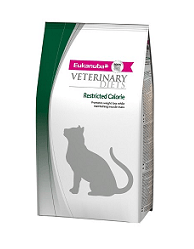 Eukanuba also have a feline Restricted Calorie diet which can be used for cats who are struggling with obesity and diabetes. Like the Eukanuba canine diet it contains a blend of maize and sorghum carbohydrates, which help to provide optimum glucose reduction and insulin response after eating. There is also an increased level of high quality protein and reduced fat content to help reduce calorie intake while maintaining muscle mass. The diet also adds glucosamine and chondroitin sulphate which can help support healthy joints, and a selection of vitamins and minerals to manage overall health and vitality in the cat.
Eukanuba also have a feline Restricted Calorie diet which can be used for cats who are struggling with obesity and diabetes. Like the Eukanuba canine diet it contains a blend of maize and sorghum carbohydrates, which help to provide optimum glucose reduction and insulin response after eating. There is also an increased level of high quality protein and reduced fat content to help reduce calorie intake while maintaining muscle mass. The diet also adds glucosamine and chondroitin sulphate which can help support healthy joints, and a selection of vitamins and minerals to manage overall health and vitality in the cat.
By being aware of the symptoms of diabetes before they occur and having knowledge of what to do if it does happen to your pet, you should be able to react quickly to give them the best quality care. If symptoms do appear then you should always visit you veterinarian who will be able to offer advice and testing. Managing pet diabetes needn't be a problem, so long as you follow your vet's advice and provide the correct diet.
Written by: Adam
